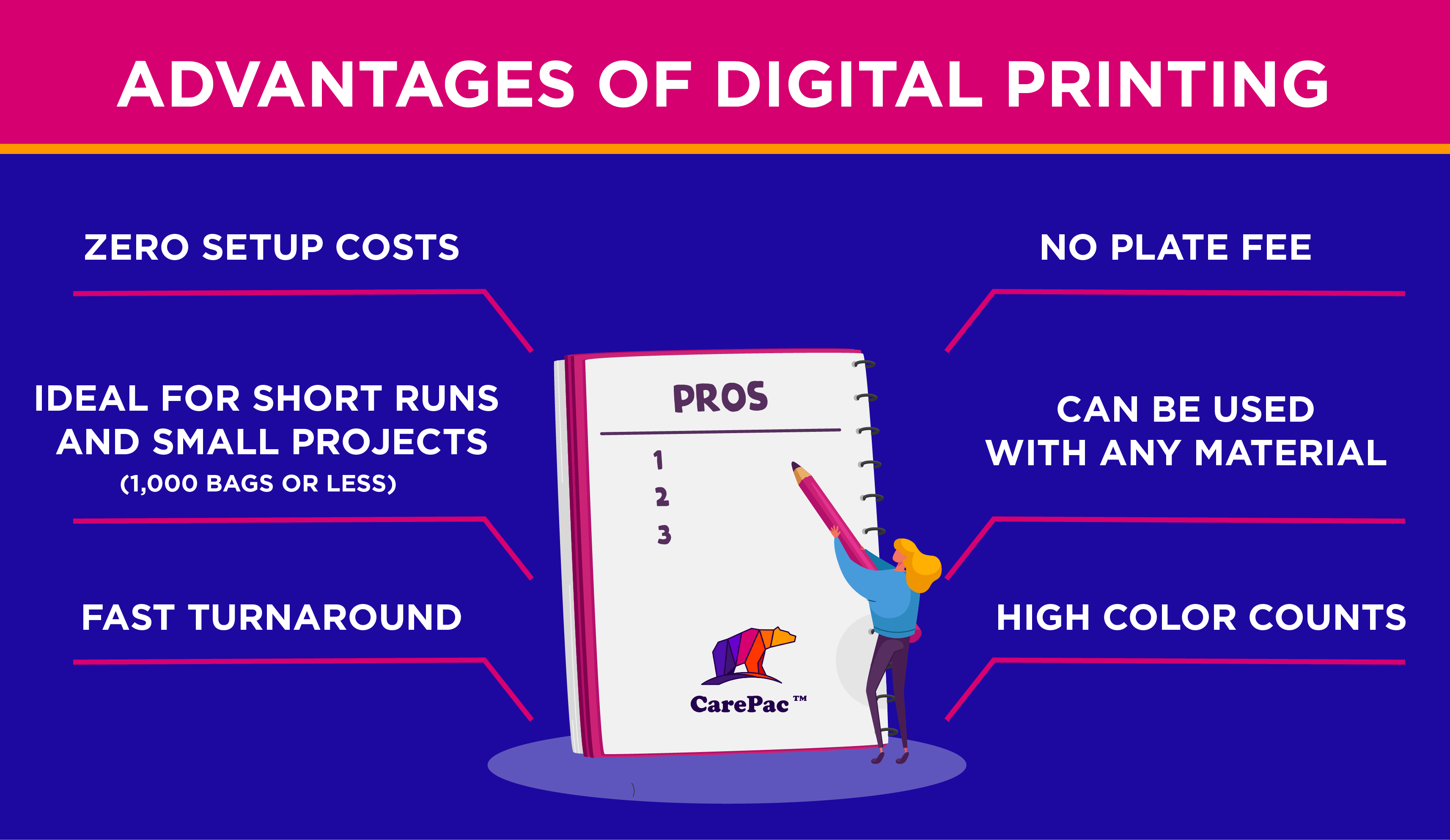The Buzz on Digital Printing
Table of ContentsExcitement About Digital PrintingDigital Printing Things To Know Before You Get ThisThe Of Digital PrintingDigital Printing Fundamentals ExplainedThe Single Strategy To Use For Digital PrintingA Biased View of Digital Printing
Variable information printing, such as straight mail with customized codes and addresses, is preferably suited for electronic printing. Digital fast printing only requires four actions of style, testimonial, printing and binding to get every little thing done. Digital quick printing has an unequaled advantage: print on demand.According to PMMI, digital printing allows brands and suppliers to respond rapidly to client needs while improving the supply chain, minimizing warehousing price and waste, and taking pleasure in faster time to market. That all audios great, but exactly how does this innovation do all that? The major differentiator of these innovations is that there are no set up costs and no plates with electronic printing.
About Digital Printing
According to Wikipedia, the best difference in between electronic printing and standard techniques such as lithography, flexography, gravure, or letterpress - Digital Printing is that there is no need to replace printing plates in digital printing, whereas in these analog printing methods the plates are repeatedly changed. This causes quicker turnaround time and lowers price when utilizing digital printing.
Rapid manufacturing means obtaining your item to market faster. It also suggests it's less complicated and faster to make modifications later on, when you transform a dish, include a SKU, or create seasonal product packaging. Digital printing is extremely flexible, so it's very easy to make modifications to the package layout rapidly. It all returns to the plates.
With standard printing methods, short-run printing is just not feasible. Because an excellent design can make or break your item, electronic printing constantly creates top notch, clear and colorful graphics each time.
Digital printing is the process of printing digital-based pictures directly onto a range of media substrates. There is no requirement for a printing plate, unlike with countered printing. Digital documents such as PDFs or desktop publishing data can be sent out straight to the electronic printing press to print on paper, picture paper, canvas, textile, synthetics, cardstock and various other substrates.
Little Known Facts About Digital Printing.
According to PMMI, digital printing permits brands and producers to respond swiftly to client needs while boosting the supply chain, decreasing warehousing cost and waste, and delighting in faster time to market. That all sounds fantastic, but how does this technology do all that? The significant differentiator Read More Here of these innovations is that there are no set-up fees and no plates with electronic printing.
According to Wikipedia, the best distinction between digital printing and conventional methods such as lithography, flexography, gravure, or letterpress is that there is no requirement to replace printing plates in digital printing, whereas in these analog printing approaches home plates are continuously replaced. This results in quicker turn-around time and decreases cost when using electronic printing.

Digital Printing Can Be Fun For Everyone
A lot more inventory can suggest important site more waste in the future. With traditional printing approaches, short-run printing is simply not possible. Due to the fact that a great style can make or damage your product, electronic printing regularly develops top notch, clear and colorful graphics each time. Digital printing on adaptable pouches includes the bright, lively, and precise graphics that almost beckon consumers to connect and touch them.

According to PMMI, digital printing permits brands and manufacturers to react quickly to client needs while enhancing the supply chain, lowering warehousing cost and waste, and enjoying faster time to market. That all noises fantastic, but exactly how does her latest blog this technology do all that? The major differentiator of these modern technologies is that there are no set-up charges and no plates with electronic printing.
The Only Guide for Digital Printing
According to Wikipedia, the greatest difference between digital printing and conventional techniques such as lithography, flexography, gravure, or letterpress is that there is no requirement to change printing plates in electronic printing, whereas in these analog printing methods the plates are continuously changed. This causes quicker turn-around time and decreases price when making use of digital printing.
Digital printing is extremely versatile, so it's easy to make changes to the plan style rapidly. It all goes back to the plates.

Some Known Factual Statements About Digital Printing
Digital printing is the procedure of printing digital-based pictures straight onto a range of media substrates. There is no demand for a printing plate, unlike with offset printing. Digital files such as PDFs or desktop computer publishing data can be sent straight to the electronic printing machine to publish on paper, image paper, canvas, material, synthetics, cardstock and other substratums.